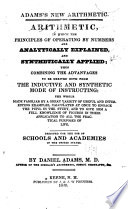 | Daniel Adams - Arithmetic - 1840 - 278 pages
...extremes, and the other terms are called the means. There are five things in arithmetical progression, any three of which being given, the other two may be found: — 1st. Theirs* term. 2d. The last term. 3d. The number of terms. 4th. The common difference. 5th.... | |
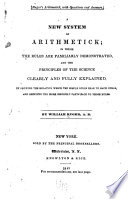 | William Ruger - Arithmetic - 1841 - 268 pages
...3d. The number of terms. 3d. The last term. 4th. The common difference. 5lh the sum of all the terms. Any three of which being given, the other two may be found. CASE I. — The first term, common difference, and number of terms given, to find the last term. RULE.... | |
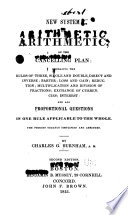 | Charles Guilford Burnham - Arithmetic - 1841 - 324 pages
...considered, viz : the first and last terms, the number, common difference, and sum of all the terms ; any three of which being given the other two may be found. •. J. If I^buy 4 books, giving 2 cents for the first, 4 for the second, and so on, with a common... | |
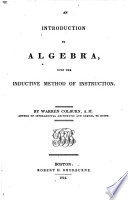 | Warren Colburn - Algebra - 1844 - 280 pages
...l)d This formula and the following y _ n (a + I) 2 ' contain five different things, viz. a, I, n, d, and. S; any three of which being given, the other two may be found, by combining the two equations. I shall leave the learner to trace these ' himself as occasion may... | |
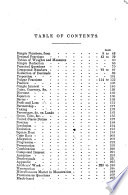 | Almon Ticknor - Arithmetic - 1846 - 276 pages
...16, 8, 4, 2, decrease continually by the divisor 2, &c. In this rule there are five denominations, any three of which being given, the other two may be found : 1st, the first term ; 2d, the last term ; 3d, the number of terms ; 4th, the ratio ; 5th, the sum... | |
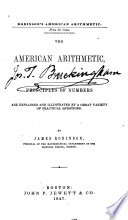 | James Robinson (of Boston.) - 1847 - 304 pages
...first term, the last term, the common difference, the number of terms, and the sum of all the terms ; any three of which being given, the other two may be found. GEOMETRICAL PROGRESSION. Art. 179. GEOMETRICAL PROGRESSION is a series of numbers which increase continually... | |
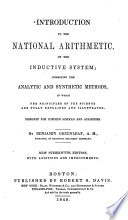 | Benjamin Greenleaf - Arithmetic - 1849 - 336 pages
...descending series ? What are the extremes of a series ? What the means ? What five things are mentioned, any three of which being given, the other two may be found ? 2 6 138 5*4 1&2 486 1458 The factors of 1458, are 3, 3, 3, 3, 3, 3, and 2, the last of which is the... | |
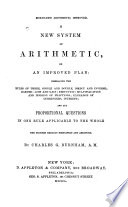 | Charles Guilford Burnham - 1850 - 350 pages
...considered, viz. : the first and last terms, the number, common difference, and sum of all the terms ; any three of which being given, the other two may be found. 1. If I buy 4 books, giving 2 cents for the first, 4 for the second, and so on, with a common difference... | |
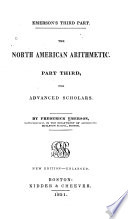 | Frederick Emerson - Arithmetic - 1851 - 342 pages
...What by the common difference ? What is Theorem 1st ? 2d? 3d? 4th? What five things are mentioned, any three of which being given, the other two may be found ? I. The extremes and number of terms being given, how can you find the sum of all the terms ? II.... | |
 | Sarah Porter - Arithmetic - 1852 - 286 pages
...term „ L 3. The number of terms ,, N 4. The common difference „ D 5. The sum of all the terms „ S Any three of which being given, the other two may be found. The following, is a summary of all we have already proved by the preceding investigation : — S =... | |
| |